23 People Reveal The Most Intimate Secrets That They Have Never Told Anyone

Apart from being a great food additive and warding off vampires, garlic has cleansing properties that can make things more tolerable around the bathroom. And we can all use that. Freshly crushed garlic cloves contain a variety of antimicrobial properties. Allicin reduces the build-up of bacteria and fungi.
The natural cleansing properties of garlic are not only great for the environment, but they can also help you avoid the need to constantly clean the toilet. Simply crush up a piece of garlic and put it into your toilet bowl before you go to bed. The next morning flush the toilet. Allicin has done the grueling task of cleaning the toilet for you. Doing this two times a week will ensure a very clean toilet bowl.
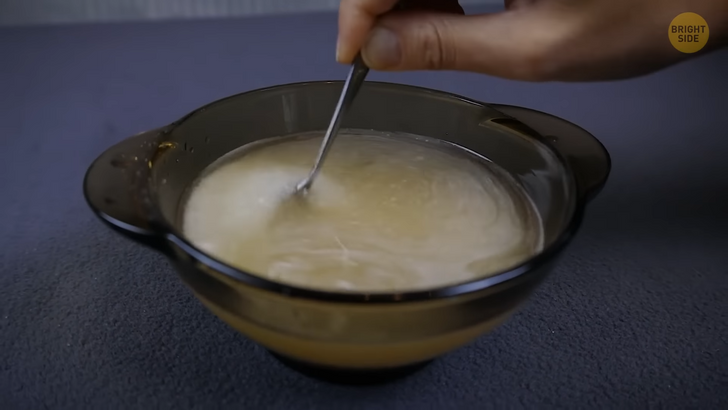
Hair, grease, and grime build up over time and eventually clog the drains, removing the blockage is easy with salt and vinegar. Using a small bowl, add 1 cup of vinegar and one cup of salt, and mix thoroughly until it’s evenly combined. Pour the mixture into the drain and wait for 15 to 30 minutes — depending on the severity of the clog. This method will save on money, further showing that salt and vinegar aren’t just good on chips. But they are!
To further ensure the drain is clear of not only the blockage but also the smell, add 3 ½ ounces of baking soda. Boil 6 ounces of water and mix in 1 cup of vinegar. Pour the baking soda into the drain, followed by the boiling water and vinegar mix. It will begin sizzling once the reaction starts, so just sit back and let it do its thing. An hour later the blockage, along with the smell will be gone.
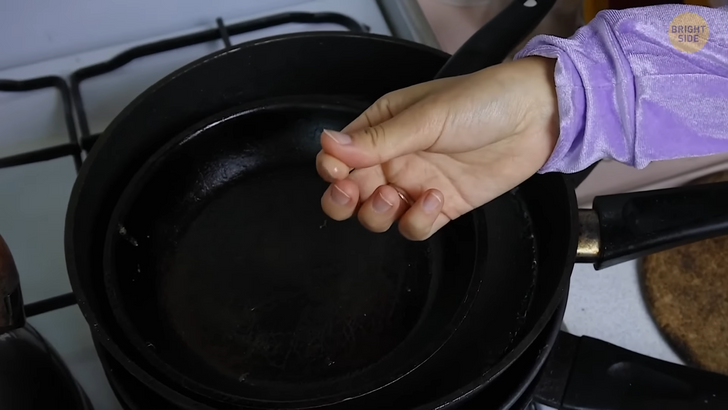
Scorched pans tend to use a lot of elbow grease, but they can be cleaned a lot easier with the right ingredients. Fill your pot or pan with water and add in about 1 cup of vinegar. Bring the liquid to a boil, then remove the pan from the heat before it completely dries up, ensuring that there is a small amount of liquid remaining.
Sprinkle baking soda on the base, covering the burnt parts, a couple of teaspoons should be enough to form a slurry. Watch and wait as the soda fizzes, continue to move the pan around to ensure you cover the scorched areas. Once the fizzing stops, you’re free to scrub away. Vinegar by itself can be used for many purposes.
A couple of teaspoons mixed with water in a spray bottle will easily remove salt stains from shoes. Pour white vinegar into a container, and place rusty tools inside, overnight the vinegar will eat away at the rust. After 24 hours, as you wipe it, you will be able to remove the corrosion easily.
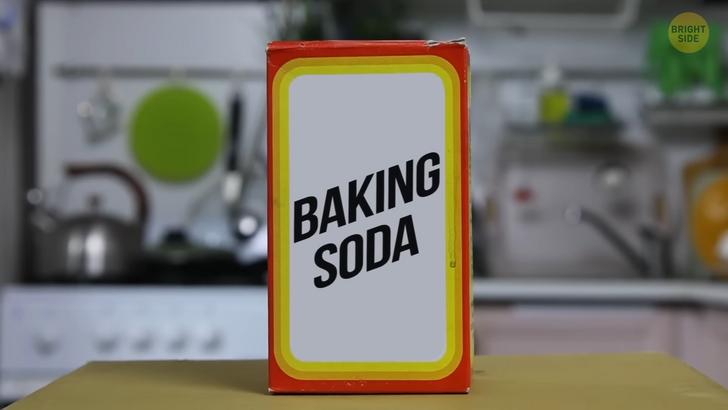
Baking soda also removes foul odors on furniture and carpet, as it gradually absorbs all the acidic odors within a covered area. Baking soda is a pH neutralizer, which means it absorbs smells that are acidic in nature, this includes most of the nasty smells we find throughout our living areas. When applying, ensure you are very generous while spreading, leave it on the required area for at least an hour, and for the best results, leave it overnight. Then just suck it up with a vacuum cleaner.
Charcoal contains the same odor-removing elements, only better, and deals with a greater variety of particles. However, you don’t want to exchange smells for patches of black stains from the charcoal. But putting them into air freshener sachets and hiding them underneath the cushions, will have the desired effect, without the mess.
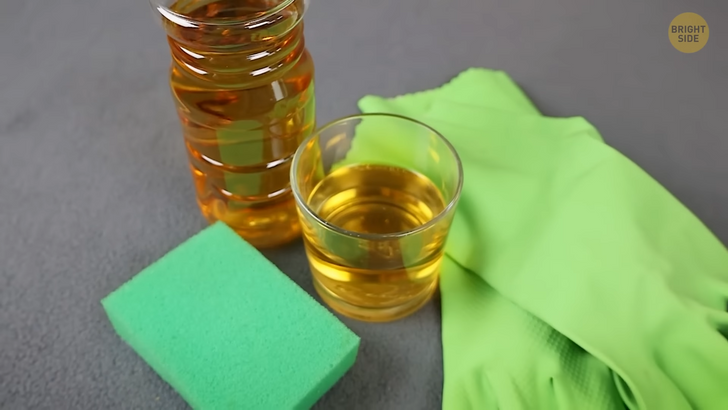
There are various forms of cleaning that you can do with vinegar. The reason why it’s so effective is the acetic acid content, which is more powerful than other natural ingredients like coffee and orange juice. There is a process involved for vinegar to develop into the grime-fighting liquid that it is. The acetic acid that makes up the effective properties is due to a double fermentation process, converting simple sugars into ethanol, using yeast.
The ethanol then turns into acetic acid, becoming capable of dissolving mineral deposits, and it can be used on many surfaces without damaging them. Not only is it beneficial for cleaning and removing stains, but also for polishing copper, brass, bronze, and silver. Given its benefits for almost anything, it will give your dishwasher an extra boost with a natural cleanse. Just fill up half a bowl of white vinegar, and place it on the top rack before you start the machine, then witness the immaculate results.
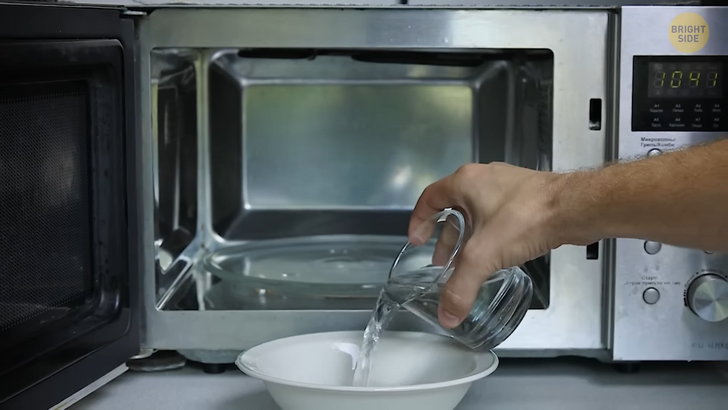
Within the small space of a microwave, you can combine 2 cups of water with ¼ cup of lemon juice in an open dish. Run the microwave on high for 8 minutes. The steam from the solution will get absorbed into the crusty layers within the microwave and, once complete, it will be easier to clean, leaving a fresh lemony smell. Ooh.
Using the oil of cloves and cinnamon, you can soak cotton balls in them and place them in small bags inside your closet. Moths and other insects can’t stand these ingredients which will ensure that your clothes remain untouched. Using similar ingredients, you can create your own humidifier with a stove in the winter. Simply fill a can two-thirds of the way with water, adding cinnamon sticks, cloves, and orange peel, and place it on the stove. While it adds moisture to the air, it will also provide a soothing scent.
Scratches, nicks, and marks made on wooden furniture can be re-stained with a pecan by simply rubbing it on the scratched or damaged area.
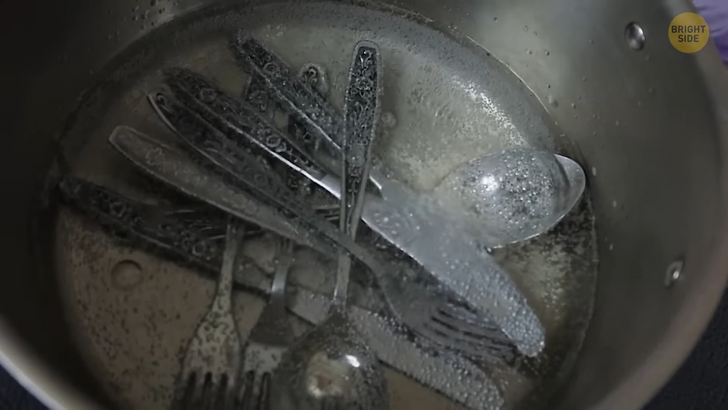
Has your stainless-steel cutlery and other flatware lost its shine? Put them in a small pan filled with carbonated water. Let them sit until the bubbles have completely gone flat. The steel will shine as good as new once removed and wiped down.
Add witch hazel to the water-fill in your iron, and as you’re ironing your clothes, instead of the stale smell normally produced, you’ll have a sweeter, fresher scent instead.
Within the difficult corners of furniture where a vacuum cleaner’s suction can’t quite reach, use a paintbrush to easily reach the build-up that has escaped the suction for so long.
Chewing gum stuck on your finger? Or maybe after popping it, it’s now stuck in your hair? Rub vegetable oil on it, then leave it for a few minutes until you’re able to remove it easily.
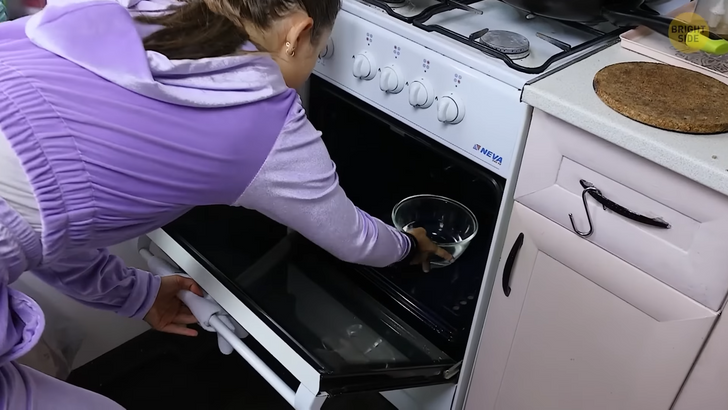
Ammonia is 100% safe for the environment, though it can be harmful to the skin. But its cleaning uses are extensive. Pour a cup of household ammonia into a small bowl in the oven, making sure the oven is off, and leave it overnight. The next morning, wipe it down using a damp wipe. You’ll appreciate the difference as you easily clean the grime from the hardest places to wash.
Ammonia’s natural benefits should mean it’s always used instead of bleach. In the bathroom, not only does it make the tiles sparkle like brand new, but it will easily remove mildew. ¼ cup of ammonia per gallon will get the job done.
Running half a lemon down the side of a cheese grater will effectively remove sticky food particles, just remember to wash with water afterward. This ensures a more effective cleanse, and keeps your fingers safe from being cut! Make sure to save the juice from the lemon, as it’s a natural substitute for bleach. Using just ½ cup of juice per gallon, leave clothes to soak for at least an hour, then dry them out in the sun. The same volume can also be used in a washing machine to brighten colors and bleach your whites.
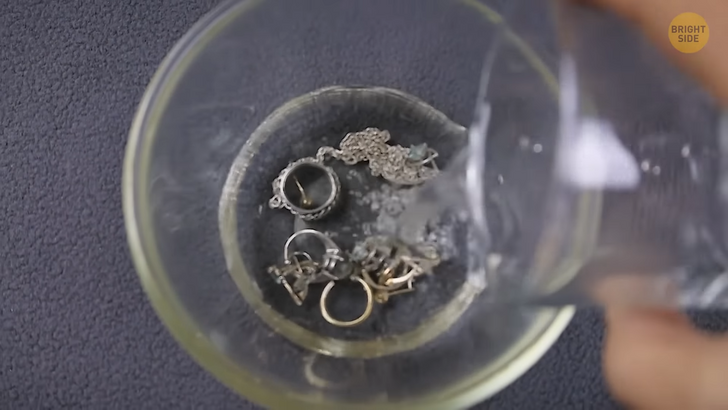
It’s also possible to sanitize your earrings with 1 tablespoon of lemon juice in 1 and a half cups of water, just be sure you avoid putting in your gold and pearls, as they’re sensitive to the acids found in lemons.
Apply olive oil and a bit of salt when washing your cast iron pans after cooking. This will ensure you remove all the debris and will reduce the effects on the surface of the pan, extending its usage. Without using salt, the same method can be used to remove stains on stainless steel benches and ovens. Gently cleaning with a small amount of olive oil in a circular motion will not only remove charred fragments but will also restore their shine.
Along with other cold-pressed oils, olive oil can also repair scratches, and restore the color and general wear and tear of leather furniture. You just need to dab a small amount on a cloth, and gently rub it in. Due to the antimicrobial properties that olive oil contains, it’s an incredibly safe and natural alternative to chemicals. Further varieties of oils, like tea tree oil, have even more benefits with their antiviral and antifungal properties. By using distilled water in a spray bottle with a few drops of olive oil, you can make your own ready-to-use all-purpose cleaner.











